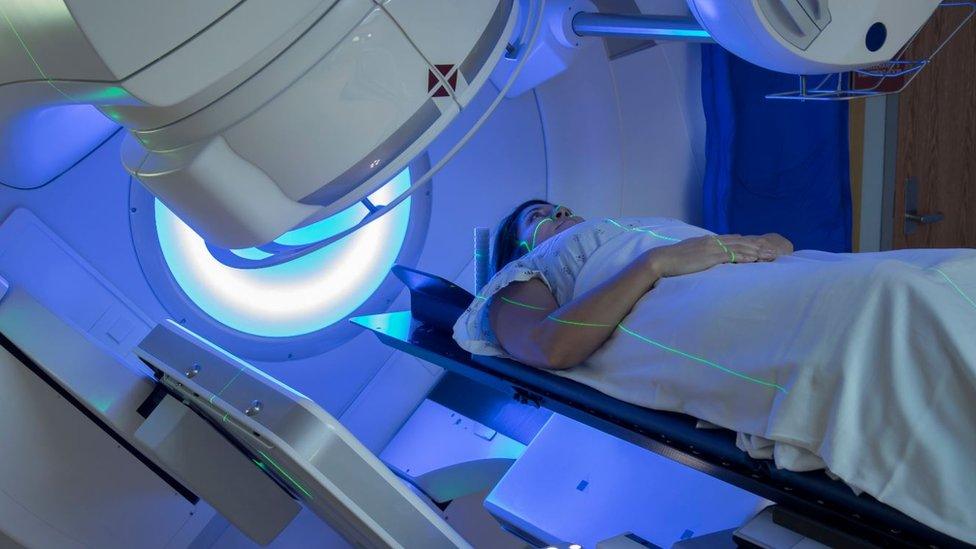Beatson clinical trial gives 'incurable' cancer patients hope
- Published

A clinical trial involving the Beatson in Glasgow is bringing hope to cancer patients who would previously have been considered incurable.
Doctors say the trial suggests high-precision radiotherapy can double how long a patient can live without cancer.
A total of 99 patients from the UK, Canada, Australia and the Netherlands took part in the trial's second phase.
Patients with cancers that had previously been treated but returned in other parts of the body were included.
The study, called SABR-COMET, enrolled patients who had been treated for cancer previously, which then returned in up to five places.
The patients were treated with a form of high-precision radiotherapy - known as stereotactic ablative radiotherapy (SABR), or stereotactic body radiation therapy (SBRT) - that delivers higher doses of radiation to the area of the tumour across one or a few sessions.
Game-changer
Usually when a patient's cancer has spread to other parts of the body, called metastatic cancer, they are considered incurable - but researchers believe that this trial suggests that this type of radiotherapy can double how long a patient can live without cancer.
Dr Stephen Harrow, of the Beatson West of Scotland Cancer Centre, co-authored the study. He said: "I truly believe it could be a game-changer for many.
"Traditionally when a cancer has spread to other organs other than the original site of the disease patients were considered incurable.
"However, there is a theory called the oligometastatic theory - that if a patient only has a few spots of cancer returning, those spots could be killed with radiation or with surgery to improve their survival.
"But this has never been shown in a randomized trial before now."
Dr Harrow added: "It has been a great opportunity for Scottish patients to take part in this ground breaking clinical trial and now we've been able to show that if, indeed, a patient's cancer has spread to only a few spots, those tumours can be targeted with high-dose radiation which has been shown to increase survival by a median of 13 months."
Cancer 'completely eradicated'
Albert Anderson, 83, from Ayrshire, benefitted from the trial. Seven years ago he had a cancerous lesion in his windpipe, which was followed three years later with two small tumours in his lung.
Mr Anderson said: "Thanks to the trial, my cancer has been completely eradicated. My treatment has been excellent.
"I hope the treatment this trial brings become normal for everyone and brings hope to those with secondary cancers."